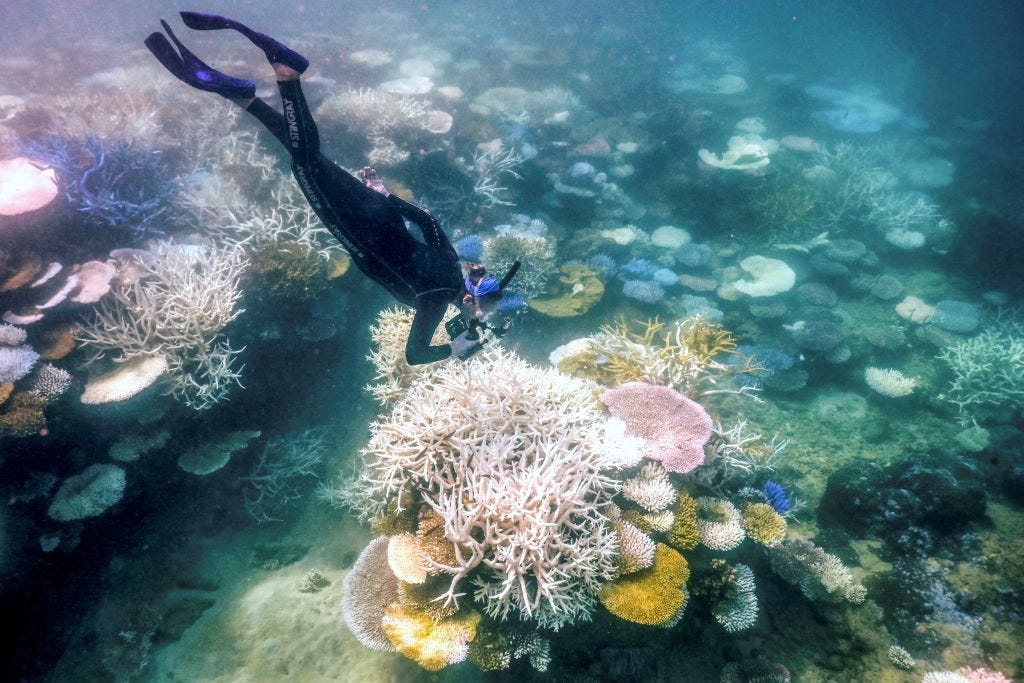The only way to save coral reefs
A coral scientist calls for more "honest" messaging amid a global bleaching event.

The world’s coral reefs are in bad shape. On Monday, two major scientific bodies announced that record-breaking ocean heat is causing a


